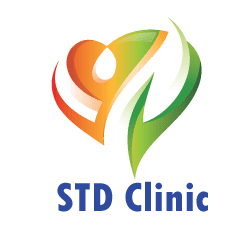STD Prevention for Teens and Young Adults: What You Need to Know
Sexually transmitted diseases (STDs) are a significant health concern for teens and young adults. Understanding how to prevent these infections is crucial for maintaining your health and well-being. Here’s what you need to know about STD prevention.
1. Understand the Risks
Common STDs: The most common STDs among teens and young adults include chlamydia, gonorrhea, syphilis, human papillomavirus (HPV), herpes, and HIV/AIDS. These infections can have serious health consequences if left untreated.
Asymptomatic Nature: Many STDs do not show immediate symptoms. This means that you or your partner could be infected without knowing it, which increases the risk of transmission.
2. Practice Safe Sex
Use Condoms: Always use condoms during vaginal, anal, and oral sex. Condoms are highly effective in reducing the risk of most STDs when used correctly. Make sure to use a new condom for each sexual act and follow the instructions for proper application.
Dental Dams: Use dental dams during oral sex to prevent the transmission of STDs. They act as a barrier between the mouth and the genitals or anus.
Limit Sexual Partners: Reducing the number of sexual partners decreases your risk of contracting STDs. Consider having a mutually monogamous relationship where both partners are exclusive and have been tested.
3. Get Vaccinated
HPV Vaccine: The HPV vaccine protects against the human papillomavirus, which can cause genital warts and various cancers, including cervical cancer. The vaccine is most effective when given before becoming sexually active.
Hepatitis B Vaccine: Hepatitis B is a virus that can cause chronic liver disease. The vaccine is highly effective in preventing hepatitis B infection.
4. Regular STD Testing
Routine Screenings: Regular STD testing is essential for sexually active individuals. Early detection and treatment can prevent complications and reduce the spread of infections. Consult your healthcare provider about how often you should get tested.
Testing Locations: You can get tested at your doctor’s office, health clinics, or specialized STD clinics. Many communities offer free or low-cost testing services.
5. Open Communication
Talk to Your Partner: Have open and honest conversations with your partner about your sexual health and history. Discussing STD testing and prevention shows mutual respect and care for each other’s well-being.
Set Boundaries: Communicate your boundaries and make sure you’re comfortable with the decisions you make about your sexual health.
6. Avoid Risky Behaviors
Substance Use: Avoid using alcohol and drugs, which can impair judgment and lead to risky sexual behaviors. Being under the influence can make it more challenging to practice safe sex.
Peer Pressure: Don’t succumb to peer pressure when it comes to sexual activity. Make decisions that are right for you and your health.
7. Know the Symptoms
Recognize Signs: Learn to recognize the symptoms of common STDs, which can include unusual discharge, pain during urination, sores or bumps on the genitals, and flu-like symptoms. If you notice any of these signs, seek medical attention promptly.
Asymptomatic STDs: Remember that many STDs can be asymptomatic. Regular testing is the only way to be certain of your status.
8. Seek Medical Advice
Professional Guidance: Consult a healthcare professional for advice on STD prevention and treatment. They can provide you with the necessary resources and support to maintain your sexual health.
Confidential Services: Many healthcare providers offer confidential services for teens and young adults, ensuring your privacy is protected.
Conclusion
Preventing STDs is crucial for teens and young adults to maintain their health and well-being. By understanding the risks, practicing safe sex, getting vaccinated, and undergoing regular testing, you can significantly reduce your risk of contracting and spreading STDs. Open communication with your partner and healthcare provider is key to making informed decisions about your sexual health. Remember, taking proactive steps today will help you lead a healthier and safer life.
